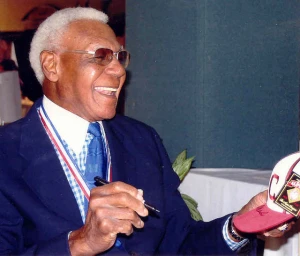
After we got home from Cooperstown in early August, we decided to watch Ken Burns’ 1994 documentary “Baseball.” Neither of us had seen a Burns film in its entirety since “The Civil War” (i.e., before kids), mainly because we don’t watch much television and we don’t like getting trapped into sitting through long series. But this seemed worth taking on, especially since the 2022 Red Sox weren’t doing anything that warranted investing time in.
On Saturday night, we finally finished with 11th and final episode — one of two post-production add-ons, this one largely about the Red Sox’ 2004 World Series triumph, which, based on the amount of airtime he got, the Sox apparently staged for the benefit of Mike Barnicle. The steroid-induced rise and fall of Barry Bonds got quite a bit of attention as well, and it warmed our hearts to see Roger Clemens administered a thorough thrashing.
The original nine “innings” were well worth the time we put into them. Running two to two and a half hours per episode, they started slowly, with an overdose of lyrical tributes to the quiet joys of the National Pastime. Once Babe Ruth arrives on the scene, though, the series really kicks into gear, with lots of great archival footage. The highlight is Jackie Robinson, whom we follow from his debut with the Brooklyn Dodgers in 1947 until his premature death in 1972.

“Baseball” is done in Burns’ characteristic style, with a lot of talking heads, including Bob Costas, Doris Kearns Goodwin, Studs Terkel, George Will and — the best, in our view — Buck O’Neil, a Negro Leagues star who died in 2006 and who was inducted into the Hall of Fame in 2022. O’Neil comes across as calm and wise, with a slight edge of hurt and anger occasionally flashing in his eyes. We had the sense that he knew more about baseball and life than the rest of Burns’ guests put together.
The unevenness of the two add-ons came as a surprise — Burns’ attention to detail was largely missing, maybe because he farmed out much of the work to underlings. The sound editing was terrible, with the music often drowning out what the guest commentators had to say. Still, how can you not love watching the Sox dismantle the Yankees in the 2004 league championship series all over again?
We watched it by signing up for a PBS Documentaries subscription for $3.99 a month and then tuning in through Amazon Prime Video. If you’ve never seen “Baseball” and you’ve got 20-plus hours to spare, we recommend it.

